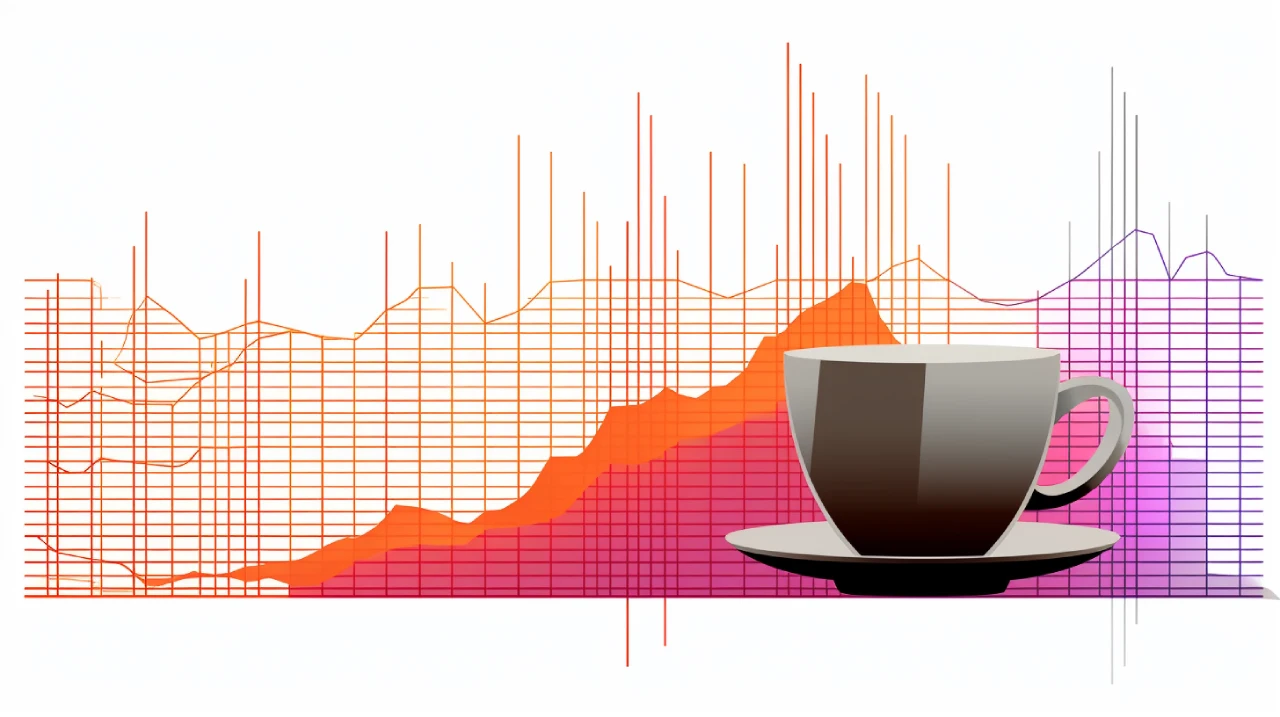Sweepstakes casinos didn’t start with a roadmap. They slipped in through legal gaps, rebranded promotions, and blinking slot screens that weren’t technically gambling. Because we think it matters how we got here, SweepCasinos sent out our team to trace the full arc—court rulings, café raids, internet pivots, and everything in between.



Pepsi Cola Bottling Co. v. Coca-Cola Bottling Co. (Ala.) establishes a key legal precedent for sweepstakes gaming. The Alabama Supreme Court rules that Pepsi’s promotional “Instant Cash” bottle-cap sweepstakes is not an illegal lottery because participants can enter for free (meaning no required purchase, or consideration).
This decision confirms that promotional sweepstakes with a free-entry option are legal under U.S. gambling law, laying groundwork for future sweepstakes-based gaming models.
The first “internet sweepstakes cafés” begin appearing in the Southern United States, offering casino-style games under the guise of promotional sweepstakes. These businesses sell a product (like phone cards or internet time) and give customers entries into a sweepstakes as a bonus.
The computerized sweepstakes, revealed on in-store terminals with slot machine graphics, allow customers to win cash prizes. This model exploits a legal loophole – if gameplay entries can be obtained for free, the activity isn’t technically classified as gambling.
North Carolina cracks down again, closing the video poker loophole. The state passes a law explicitly banning electronic gaming machines that simulate slot play. This pushes many operators fully into the sweepstakes café model (selling a product with sweepstakes entries).
Similar “convenience casino” venues, often in strip malls or gas stations, pop up in states like Florida, South Carolina, and Alabama during the late 2000s. These unregulated parlors attract a wide clientele but also increasing scrutiny from law enforcement and regulators over their legality.

A front-page New York Times report highlights the booming business of “sweepstakes” cafes and their uncertain legal status. Dozens of these parlors (offering slot-style computer games with cash rewards) are “thriv[ing], despite police misgivings,” in states like North Carolina, Florida, and Ohio.
Customers treat them as informal casinos, while owners insist they are merely running promotions. This public spotlight underscores the growing popularity of sweepstakes casinos and foreshadows impending legal battles.
North Carolina’s legislature takes direct aim at sweepstakes gambling. It passes S.L. 2010-103, “An Act to Ban the Use of Electronic Machines and Devices for Sweepstakes Purposes,” prohibiting any video sweepstakes or simulated gambling devices effective December 1, 2010.
By year’s end, operating a sweepstakes game with an “entertaining display” (the casino-like reveal) is illegal in NC. The café industry immediately challenges the law in court on constitutional grounds, setting the stage for a major legal showdown.
The industry’s rapid growth – and the large sums of cash involved – draw critical scrutiny from state officials and traditional gambling interests alike.
Thousands of sweepstakes cafés continue operating across at least 13 US states, even as legal challenges and raids escalate.
In North Carolina, a state court temporarily sides with the operators: in March 2012, the Court of Appeals invalidates the 2010 ban, reasoning that the law’s prohibition of video “entertaining displays” violates free speech rights.
This ruling allows many NC sweepstakes parlors to keep running pending further appeal. Meanwhile, law enforcement in other states intensify crackdowns: an August 2012 Wall Street Journal investigation reports coordinated raids on cafés from Florida to California
The legal tide turns against the cafés. The North Carolina Supreme Court unanimously upholds the state’s sweepstakes ban, overturning the earlier free-speech decision.
In Hest Technologies Inc. v. State ex rel. Perdue (NC), the high court rules that prohibiting sweepstakes video games (even those revealing preset sweepstakes results) does not infringe on First Amendment rights.
This clears the way for NC authorities to enforce the 2010 ban statewide. Around the same time, regulators in other states ramp up efforts to shut down the faux-casino cafés. For example, the California Bureau of Gambling Control issues an advisory in late 2012 declaring that internet sweepstakes cafés are illegal gambling operations under California law, and cities in Ohio, Massachusetts, and Illinois begin pursuing local enforcement actions.
Sweepstakes casinos go online: Even as physical cafés face crackdowns, new sweepstakes casinos merge using the model. Notably, Australian company Virtual Gaming Worlds (VGW) launches Chumba Casino for U.S. players in 2012.
Chumba Casino introduces a dual-currency system – players purchase virtual “Gold Coins” for fun play and receive free “Sweeps Coins” that can win cash prizes – allowing the site to operate legally as a sweepstakes promotion. This pioneering social casino provides a blueprint for online sweepstakes gaming, bringing slot and table games to a national audience via the internet.
Florida’s Allied Veterans scandal: A national spotlight hits sweepstakes casinos when investigators bust a $300 million fraud masquerading as a veterans charity. Authorities in Florida and several other states raid 49 internet cafés run by Allied Veterans of the World, alleging the sweepstakes operation is a front for illegal gambling and money laundering.
Some 57 people are arrested in “Operation Reveal the Deal,” and Florida’s Lieutenant Governor Jennifer Carroll resigns after it’s revealed she once consulted for Allied Veterans.
The scandal exposes the scale of the sweepstakes café industry (Allied Veterans alone had nearly 50 locations) and generates public outrage, pressuring Florida lawmakers to act quickly.
Florida bans internet sweepstakes cafés. In an emergency response to the Allied Veterans case, the Florida Legislature amends the state’s gambling laws to outlaw sweepstakes cafés.
The updated statute (effective April 10, 2013) clarifies that game promotions must be conducted on a “limited and occasional” basis and be truly incidental to the sale of a bona fide product or service.
It explicitly prohibits electronic devices that accept money and simulate casino-style games – language aimed squarely at the café machinery. Governor Rick Scott signs the bill within days, immediately rendering hundreds of Florida sweepstakes operations illegal. Many hastily shut down; others are raided by sheriffs in the weeks that follow.
The new law’s intent is clear: Florida will not allow quasi-casino businesses exploiting the sweepstakes loophole.
A federal court reinforces California’s hard line on sweepstakes gaming. In Lucky Bob’s Internet Café, LLC v. California Dept. of Justice (S.D. Cal. 2013), a U.S. District Judge rules that an internet café’s sweepstakes system violates California’s anti-lottery and slot machine laws.
Even though the café sold internet time, the court finds that customers were essentially paying for chances to win prizes – meeting the definition of an illegal lottery (prize, chance, and consideration) under state law. This case, along with similar state court injunctions, emboldens California officials to continue padlocking sweepstakes cafés.
By late 2013, numerous California counties and cities have shut down such operations, and the legal consensus is that the sweepstakes model is unlawful there.
Ohio moves to eliminate sweepstakes parlors. Citing an “explosive proliferation” of over 800 internet cafés statewide, Ohio legislators pass House Bill 7 to effectively ban sweepstakes gaming.
Governor John Kasich signs the bill in late June. The law imposes a nominal prize cap (no award greater than $10 in value) to choke off the café business model. It also requires existing café owners to register and submit to background checks or face hefty fines.
Ohio’s Attorney General hails the act, noting that the state views these operations as predatory gambling that had evaded regulation.
The ban, combined with aggressive enforcement, leads to the closure of an estimated 600+ sweepstakes cafés across Ohio in the ensuing months.
Texas targets a major sweepstakes software supplier. Texas Attorney General Greg Abbott announces that HEST Technologies, a leading provider of sweepstakes games and systems, has pleaded guilty to criminal charges for assisting illegal gambling enterprises
HEST and its executives are convicted of engaging in organized criminal activity after an undercover investigation into their sweepstakes software, which was used in numerous Texas internet cafés.
This marks one of the first instances of a back-end developer being held liable, underscoring that authorities can pursue not only café owners but also the technology vendors enabling sweepstakes casinos.
By the end of 2013, enforcement actions and new laws in at least 20 states have either banned or severely curtailed sweepstakes casinos.
The first era of sweepstakes cafés – characterized by rapid expansion in legal gray areas – comes to a close as many brick-and-mortar operations shutter under this regulatory pressure.

In North Carolina, a final blow is dealt to the remnants of the café industry. Federal prosecutors announce a settlement with five major sweepstakes software companies, under which those vendors agree to cease all operations in NC by July 1, 2015.
This coordinated federal action (following a grand jury inquiry) essentially wipes out the supply chain for sweepstakes games in the state.
Having already survived years of cat-and-mouse with ever-changing software and legal tactics, the few remaining NC parlors cannot continue without software support. The sweepstakes café era in North Carolina thus definitively ends in mid-2015.
The California Supreme Court issues a sweeping decision affirming the illegality of sweepstakes gaming devices. In People ex rel. Green v. Grewal, the Court unanimously holds that the computerized sweepstakes systems used in several Kern County internet cafés are unlawful slot machines under California law.
The ruling upholds permanent injunctions against the operators and finds that the element of chance in the pre-revealed “sweepstakes” is essentially the same as a slot machine pull. California’s highest court emphasizes that simply giving away free entries does not immunize the scheme, especially when customers are induced to make purchases to play.
After Grewal, California prosecutors step up efforts, and by 2016 virtually all known sweepstakes cafés in the state are closed or forfeited in court proceedings.
The sweepstakes model adapts to online poker. VGW (the operator of Chumba Casino) launches Global Poker, the first sweepstakes-based online poker room in the U.S. market.
Debuting in late 2016, Global Poker allows players to buy play-money Gold Coins and receive free “Sweeps Coins” that can be used in poker tournaments and redeemed for cash prizes. This inventive approach lets the site offer real winnings in 49 states despite traditional online poker being largely illegal outside of a few jurisdictions. Global Poker proves an “instant success” and grows rapidly, showing the versatility of the sweepstakes model beyond slots.
By now, the center of sweepstakes casino activity has shifted from storefront cafés to online platforms and social media, which reach a nationwide audience while attempting to stay within promotion/contest laws.
A new wave of sweepstakes casinos comes online. VGW expands its portfolio by acquiring a social gaming company and launching LuckyLand Slots, a second sweepstakes casino site for U.S. players.
LuckyLand, like Chumba, uses a dual currency (Gold Coins and Sweeps Coins) and offers a variety of slot games playable on web browsers and mobile apps.
Around the same time, independent operators introduce other sweepstakes-based gaming sites (such as Funzpoints and Fortune Coins), further popularizing the model.
By 2018, the term “sweepstakes casino” commonly refers to these online platforms that give free sweepstakes entries with coin package purchases, allowing players to win real cash prizes in states where online gambling is otherwise illegal.
The public reception to these sites is generally positive – they are marketed as free-to-play entertainment – though traditional casino interests and some regulators remain wary.
With multiple sweepstakes casinos and even bingo and lottery-style sites operating, industry advocates form the Social and Promotional Gaming Association (SPGA) to represent legal sweepstakes gaming companies.
The SPGA and similar groups begin public campaigns to distinguish “lawful promotional sweepstakes” from illegal gambling, hoping to preempt new crackdowns.
Technologically, platforms continue to evolve: by the late 2010s, most sweepstakes casinos have gone mobile, offering smartphone sweepstakes casino apps or HTML5 sites so that players can spin slots or play poker on the go.
This period also sees improvements in game quality and variety, increasingly matching the experience of real-money online casinos.
Sweepstakes casinos position themselves as a legal, family-friendly alternative, emphasizing that no purchase is necessary to play (players can mail in requests for free coins) – a direct echo of the 1988 Pepsi case logic that allowed this model to exist.

Pandemic-fueled growth: As COVID-19 lockdowns drive people indoors, online sweepstakes casinos witness a dramatic surge in activity. Virtual Gaming Worlds’ flagship products (Chumba Casino, Global Poker, and LuckyLand) see record engagement and revenue.
In Australia, VGW reports its revenue for the 2020–21 fiscal year at $2.2 billion, a nearly 186% jump from the prior year.
In the 12 months of 2020–2021, Chumba Casino’s gross revenue roughly tripled to over $1.5 billion, while LuckyLand Slots grew to ~$450 million. This reflects a broader trend: with many physical casinos closed or restricted, Americans increasingly turn to sweepstakes casino apps for entertainment.
The public, for the most part, views these platforms as harmless “free play” games, and tens of thousands of new users sign up during the pandemic. Regulators, however, take note of the explosive growth of this unregulated gambling sector – setting the stage for debates on its legal status post-pandemic.
Legal scrutiny of online sweepstakes casinos intensifies. A Forbes analysis highlights that these platforms operate in a legal grey zone and “face long odds” if courts apply a substance-over-form test.
The article points out that courts in multiple states – from California (Lucky Bob’s and Grewal cases) to Alabama and North Carolina – have consistently found sweepstakes schemes to be unlawful when they resemble traditional gambling too closely.
It warns that the current dual-currency casino model could be challenged as an illegal lottery or gaming if any state attorney general or federal authority decides to act.
By the end of 2024, with real-money online casinos and sports betting expanding in the U.S., the unlicensed sweepstakes casinos are coming under increasing criticism for being effectively “casinos without oversight”. This growing awareness sets the stage for possible legislative or court showdowns.
Legislative pushback emerges, then stalls. In Florida, lawmakers introduce Senate Bill 1404 and House Bill 1467 aiming to ban online sweepstakes casinos and other forms of unregulated internet gambling.
The bills propose clarifying state law to make offering sweepstakes casino games (with prize redemptions) a crime, which would effectively shut down sites like Chumba and LuckyLand in Florida. These measures are backed by interests who argue that sweepstakes casinos siphon revenue from regulated gaming and pose consumer risks. Industry groups like the SPGA mount a defense, arguing the bills would “criminalize free-to-play digital entertainment” and restrict consumer choice.
In May 2025, as Florida’s legislative session closes, the anti-sweepstakes provisions fail to advance – they are tabled in committee and withdrawn without a floor vote.
For now, sweepstakes casino operators declare this a victory, noting that no state has yet passed a law explicitly banning their model. However, the effort in Florida (along with similar discussions in states like Georgia and Texas) signals that the legality of sweepstakes casinos remains a live issue.
With legislative efforts faltering, sweepstakes casinos continue to operate in most of the United States, even as questions linger. The Florida debate underscores the tension between tribal/regulated gaming interests and the newcomers: Florida’s bills were seen as protecting the Seminole Tribe’s exclusive rights by eliminating outside competitors.
Elsewhere, regulators are monitoring the industry. Consumer advocates call for clarity on whether players have adequate protections, while operators insist their activities are promotional contests fully compliant with the law.
As of mid-2025, sweepstakes casino sites such as Chumba, LuckyLand, Global Poker, and several newer entrants continue to legally offer sweepstakes-based slots, poker, and casino games to customers across the country.